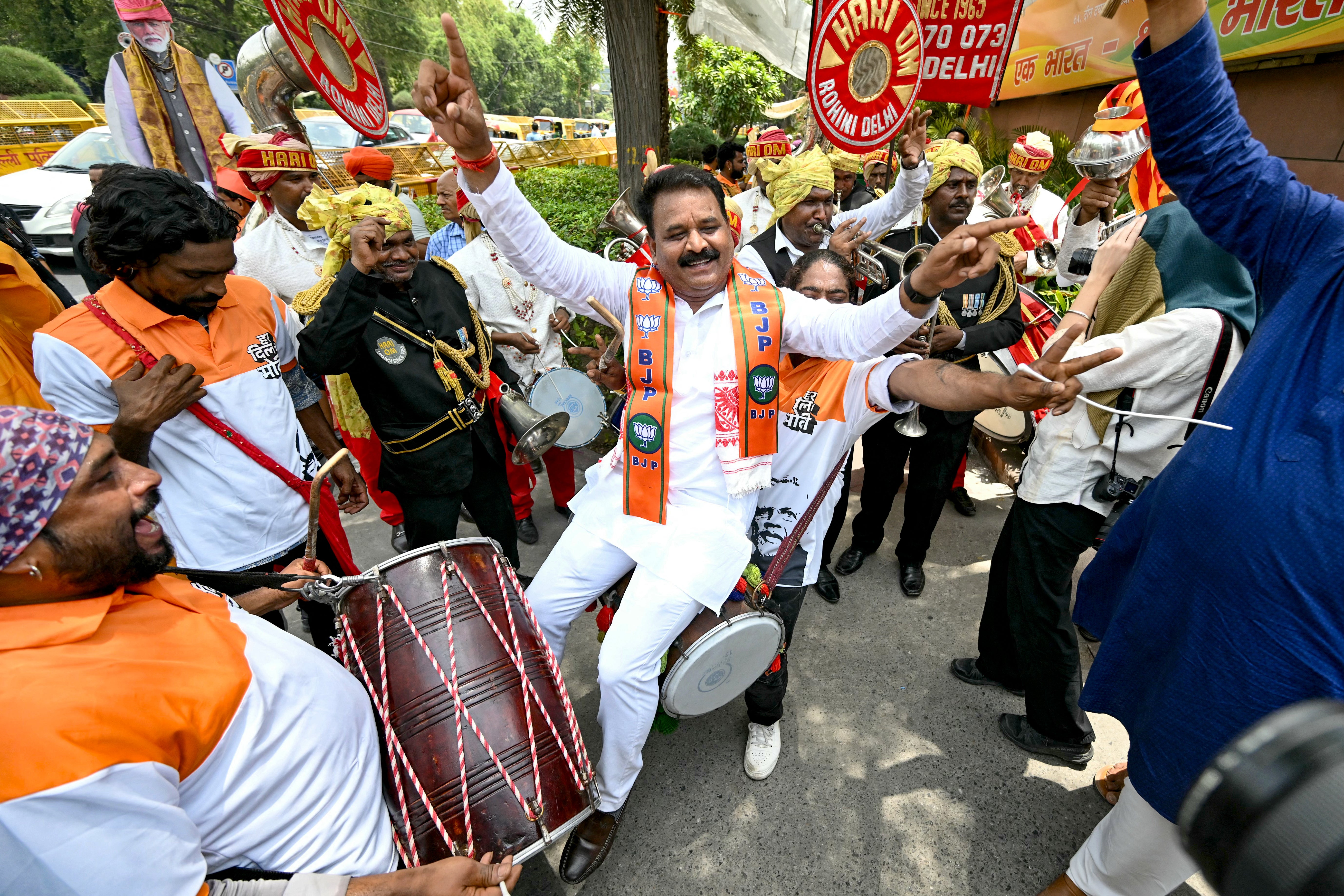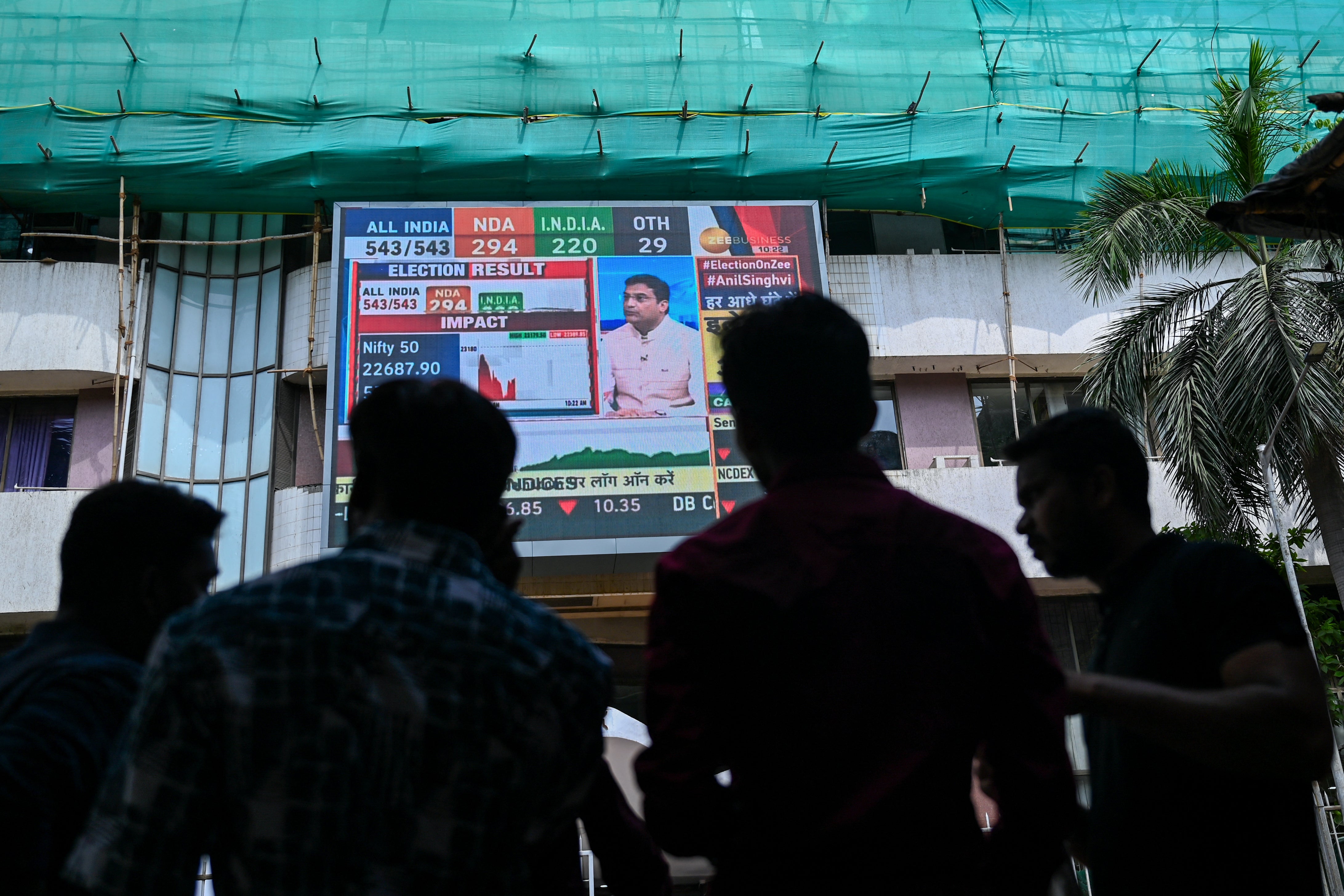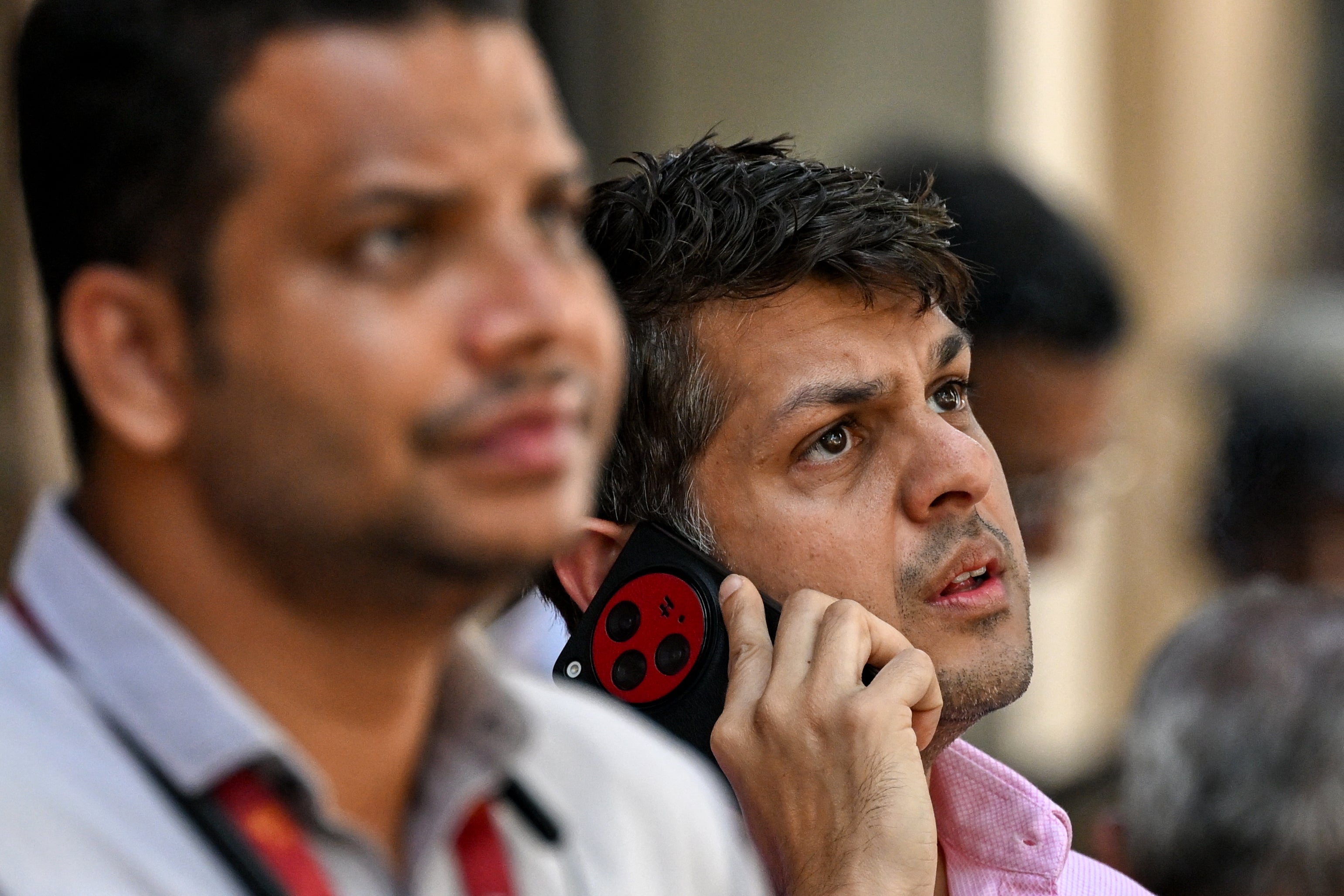Indian stock markets on Tuesday turned red during the initial phase of the vote counting as prime minister Narendra Modi‘s Bharatiya Janata Party (BJP) underperformed compared to the exit polls prediction of an overwhelming majority in the general elections.
The market tanked the most in four years after a stellar rally on Monday as the exit polls over the weekend predicted 350 seats for the BJP alone to secure a third term for Mr Modi.
However, the BJP by Tuesday afternoon was leading on 240 seats – a massive fall in numbers from its record 303 seats victory in 2019.

Mr Modi’s National Democratic Alliance (NDA) group was leading in 298 constituencies, while the opposition INDIA alliance, led by the Indian National Congress party and its main campaign leader, Rahul Gandhi, was leading in 225.
The Nifty index (NSEI) dropped as much as 5.43 per cent to 22,000.60 points while the BSE index (.BSESN) fell to a low of 72,337.34 points, down 5.4 per cent on the day.

That was the biggest fall since April 2020 and pulled stocks sharply away from record highs struck a day earlier, according to Reuters. The intraday volatility on the share index rose to its highest level in 26 months.
Bank stocks fell 7.8 per cent, realty declined 9.1 per cent, and infrastructure dropped 10.5 per cent as oil and gas stocks lost 11.7 per cent, while all sectors bled red.
Exit polls over the weekend had projected a landslide victory for Mr Modi, catapulting markets to all-time highs as investors hoped for sustained economic growth.

Benchmark indexes have more than tripled in value since Mr Modi became prime minister in May 2014. Monday’s rally in markets was fed by optimism over the economic outlook under a fresh Modi-led government.
But on Tuesday, shares of government-owned banks, infrastructure and capital goods firms that gained on Monday, saw the largest falls.
The rupee dropped to as low as 83.48 against the dollar versus its previous close of 83.1425. The benchmark 10-year bond yield rose as much 12 basis points to 7.06 per cent.
“Markets have dropped as they are now pricing in the change in governance structure,” said Umesh Kumar Mehta, chief investment officer at Samco Mutual Fund, told the news agency.
“If there is a fractured mandate, we think markets should be more nervous. But so long as the current leadership and the prime minister stays, the drop will not be massive,” he added.
The volatility of the Indian stock market is expected to continue, Sumeet Bagadia, executive director at Choice Broking said.
“The index has retraced from the intraday high, but the India VIX today has made a new base at 23. So, we may see more volatility in the Indian stock market in the near term,” he told LiveMint.

